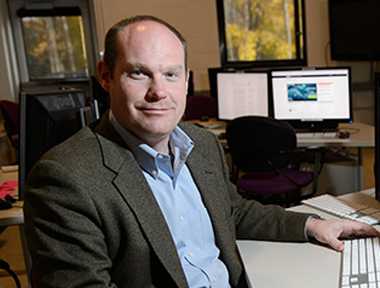Omeka: Easy Web Publishing for Scholarship and Cultural Heritage
Well into the second decade of the web, many aspiring digital humanists still find it difficult to mount online exhibitions and publish collections-based research because they lack either technical skills or sufficient funding to pay high priced web design vendors. The digital libraries and archives fields have produced high quality repository and collections management software, but these packages carry too much technical overhead and pay too little attention to web presentation and end user interface for most digital humanities projects. Commercial blog packages have made it easy for digital humanists to publish materials to the web, but the blog’s structure of serial text posts does not allow them to present deep collections or complex narratives. That is why the Center for History and New Media (CHNM) at George Mason University, in partnership with the Minnesota Historical Society, has created Omeka. From the Swahili word meaning “to display” or “to lay out for discussion,” Omeka is a next generation web publishing platform for academic work of all kinds, one that bridges the university, library, and museum worlds through–and by helping to advance–a set of commonly recognized web and metadata standards. Omeka is free and open source. It offers low installation and maintenance costs–appealing to individual scholars and smaller cultural heritage projects and institutions that lack technical staffs and large budgets. It is standards based, extensible, and interoperable–insuring compliance with accessibility guidelines and integration with existing digital collections systems to help digital humanists of all stripes design online exhibitions more efficiently. Omeka brings Web 2.0 technologies and approaches to digital humanities websites–fostering the kind of user interaction and participation that are central to the mission of digital humanities, and providing the contribution mechanisms, tagging facilities, and social networking tools that audiences are coming to expect.
Speakers

Tom Scheinfeldt is Director-at-Large of the Center for History and New Media and Research Assistant Professor of History in the Department of History and Art History at George Mason University. Tom received his bachelor's degree from Harvard and his master's and doctoral degrees from Oxford, where his doctoral thesis examined inter-war interest in science and its history in diverse cultural contexts, including museums, universities, World's Fairs and the mass media. A research associate at the Smithsonian Institution Archives and a fellow of the Science Museum, London, Tom has lectured and written extensively on the history of popular science, the history of museums, history and new media, and the changing role of history in society, and has worked on traditional exhibitions and digital projects at the Colorado Historical Society, the Museum of the History of Science in Oxford, The Louisiana State Museum, the National Museum of American History, and the Library of Congress. In addition to overseeing THATCamp.org for the Center for History and New Media, Tom has directed several of its online history projects, including Omeka, the September 11 Digital Archive, the Hurricane Digital Memory Bank, the Papers of the War Department, 1784-1800, and Gulag: Many Days, Many Lives. Tom blogs at Found History and is a regular on the Digital Campus podcast.
__Twitter..jpg)

